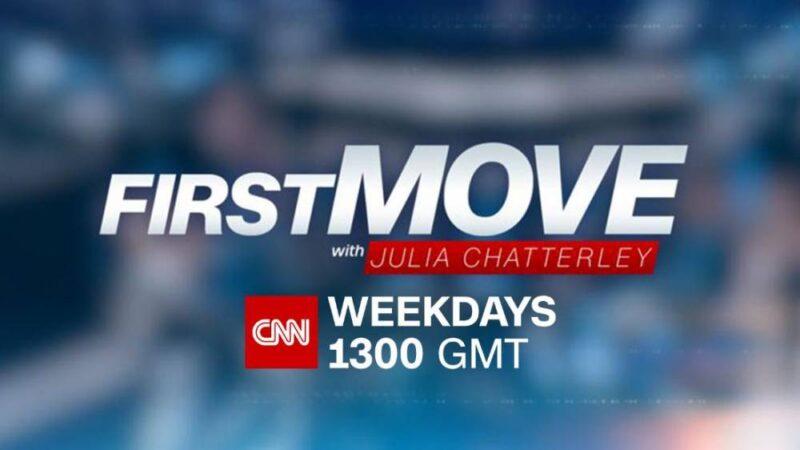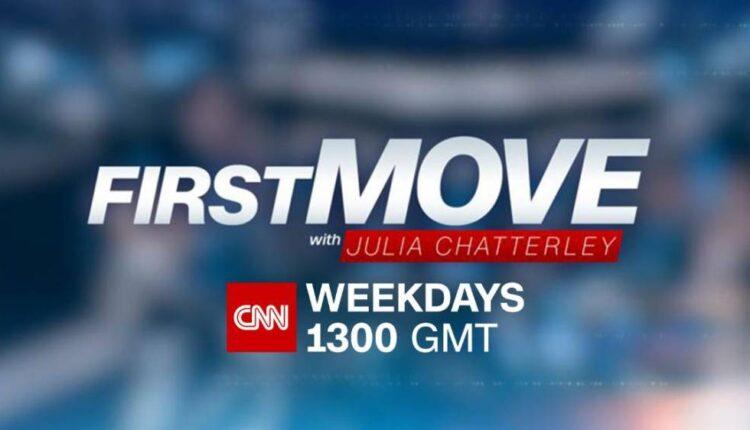New York (CNN)Online trading platform Robinhood was set to make its highly anticipated Wall Street debut on Thursday, even as the eight-year-old company faces intense regulatory scrutiny and public-relations headaches.
Even six months after GameStop trading frenzy, Robinhood is still dealing with blowback from its role in the saga, in which the app suspended trading on popular meme stocks, triggering an outcry from traders. CEO Vlad Tenev was hauled before Congress to defend that decision, putting himself and the company in the national spotlight.

Tenev spoke with CNN’s Julia Chatterley just before the opening bell on this pivotal day in the firm’s brief but eventful history.
Why is right now the right time to go public?
Read MoreTenev: I think Robinhood has seen an incredible amount of growth and engagement from our customers and we’re ready to be a public company. … We’ve been bringing on board amazing management and leaders from across technology, financial services and all sorts of different backgrounds. So we’re proud to celebrate this milestone. And for us, it’s really just the beginning. Is Robinhood mature enough to be a public company? Tenev: Yes, we believe so, and over the past year, you can see how much the company has grown not just in in leadership, but also in things like customer support, launching phone support and all sorts of different channels, improving the way we serve our customers, improving our infrastructure and technology, really building the foundation for our future growth and the products that we’ll be launching in the future. A lot of people are looking at this and saying you’re being a little bit conservative, perhaps, on the pricing. Tell me what you’re thinking here as we go to market? Tenev: Well, first of all, I think the pricing is a moment in time, and we have I think it’s accurate to say it’s conservative and we’re happy that retail customers, which make up such a big part of our allocation and really are the the cornerstone behind our business and product are able to get in at this price. You’re keeping the lion’s share of control, you have 10 times the voting share versus the shares that you’re giving to these people. What’s the message that you’re sending there? Tenev: Well, the thinking behind that is we’re a long-term-focused company and a lot of the bets that we’re making are our long-term bets. And we believe that the voting structure positions us well to be continuing that focus on the long term and keep innovating and avoid short-term distractions that can be so tempting in the public markets. And what are you expecting in terms of performance today? Are you hoping for a pop given, as you’ve said, it is a conservative pricing that you’re going in with? Tenev: I think that you’ll find that Robinhood as a public company isn’t going to comment too much on day-to-day price fluctuations. I think we’re going to be relentlessly focused on the long term, as we have been in the past and as I think it was Benjamin Graham once said, over the long run, the markets are a weighing machine. So we’d like to we’d like to be a heavy company over the long term, so to speak. You’ve been asked questions in recent days about your own registration by the FINRA regulators. When you look back over that crazy meme stock trading time, do you think you could have overstepped the line in terms of the decisions you were making, the conversations you were having? Tenev: Well, to be clear, I’m the CEO of Robinhood Markets, which is a holding company, and we have a number of regulated businesses that are at the entity level under the holding company. So Robinhood Financial is an introducing broker-dealer, Robinhood Securities clearing broker-dealer. Of course, we have Robinhood Crypto and each each of these businesses have their own leadership license where required. And and we think that structure is reasonable given our business. Are you tempted to do the exam, just do the exam and shut everybody up? Tenev: Yeah, we don’t think that’s required at this point. You’ll do it when Jack Dorsey does it? Is that the message? Tenev: Maybe. One of the other questions being asked, I think, is meme stock trading by your own employees. Can you tell us anything about that and whether there are restrictions in place or even whether the restrictions now perhaps in terms of what your employees can do? Tenev: Yeah, I probably shouldn’t be commenting on on any of these things other than to say that, of course, we’re going to cooperate with with any investigations. There are questions, though, about the future of what Robinhood looks like, how you evolve as a company, and I think at the heart of this is the way the business model works and its reliance on payment for order flow. What happens if the regulators turn around and say, look, sorry, Robinhood, you can’t use that anymore? How does the business model work in that case? Do you have contingency plans? Tenev: Well, the first thing I’d say is that I think the business model that we’ve introduced and which has really become the the standard business model for our industry is working for everyday Americans. Just look at the amount of of new customers, new investors that didn’t have access before that now have access to to the markets. So I think the business model that we’ve introduced by eliminating commissions industry-wide has had profound effects. And I think we could tell the story a little bit more. And you should see us continuing to do that. And I agree with you, and I do think you have had a profound effect, but what happens if the ability to utilize payment for order flow goes away? Because that comes to the core of what you’ve been able to provide in terms of zero-commission access. Tenev: Well, what I would say is you look at payment for order flow on the equity side and we’re generating about two-and-a-half cents per hundred dollars in traded volume. So it’s actually, you know, quite a modest revenue stream. And Robinhood’s continuing to diversify even within the transaction-based revenue segment. You can see that other assets like crypto have been making up a larger share as time goes on. And we have other lines as well as we see cash management in our spending and saving products continue to mature as we see Robinhood Gold get more and more investment. I think you’ll see us continue to diversify our revenue. So we’re going to be less dependent over time on any of our individual segments. How do you plan to retain your current customers and how are you going to get them interested in things like retirement accounts and investing for the future, as opposed to trading on a day or a shorter term basis? Tenev: We’ve been very, very pleased with the engagement and the retention that we’ve been seeing among our customer base, and I think it’s really two things going forward. One is improving the the service level and making sure that customers get the right type of customer support in a timely way when they need it. And that’s that’s very important. Along with infrastructure, scalability and being available on a technology level, having the best possible customer support is is our biggest focus. And then the other thing is continuing to grow with customers in terms of offering them products that that they could benefit from. And that’s where additional account types and additional tools for investors, especially ones that encourage first time investors to grow into long time investors, is is a big part of the brokerage roadmap and not to mention our investments in our crypto business and in the payments area where we think there’s going to be a lot of growth and further customer engagement over time. The goal is to be the most trusted and most culturally relevant money app worldwide. So you see us expanding beyond investing as well as beyond just the US. Right now trust is paramount. What do you think is the defining thing that you can do between now and the future? Let’s give it two years, three years in order to ensure that you have maximum trust relative to your peers? Tenev: Our top value is safety first, because especially when you’re dealing with your money, the way customers view it is I want to be safe using the platform. And so that’s where our investments in infrastructure, reliability and scalability have come in. And we haven’t always been perfect here. I mean, look back to March of 2020 where we had some service and stability issues. And as an engineer, that was that was disappointing to me personally. But we’ve responded to that… I think as a public company, you guys and the broader public and our customers are just going to have to see us deliver. And that’s ultimately how how trust is earned and grown over time. We’re going to keep telling you what our focus is and what we’re going to do and what we’re going to deliver. And then you have to watch us deliver it.
How exciting is this day? How does this moment feel? Can you put it into words for me, please? Tenev: I think it’s it’s humbling. I came to this country, I was an immigrant from Bulgaria, and I first came into JFK Airport when I was 5 years old in the early ’90s, and began my entrepreneurial journey in New York City as well. So now to be back here after six years since Robinhood’s launch, it’s really surreal.
Source: edition.cnn.com

